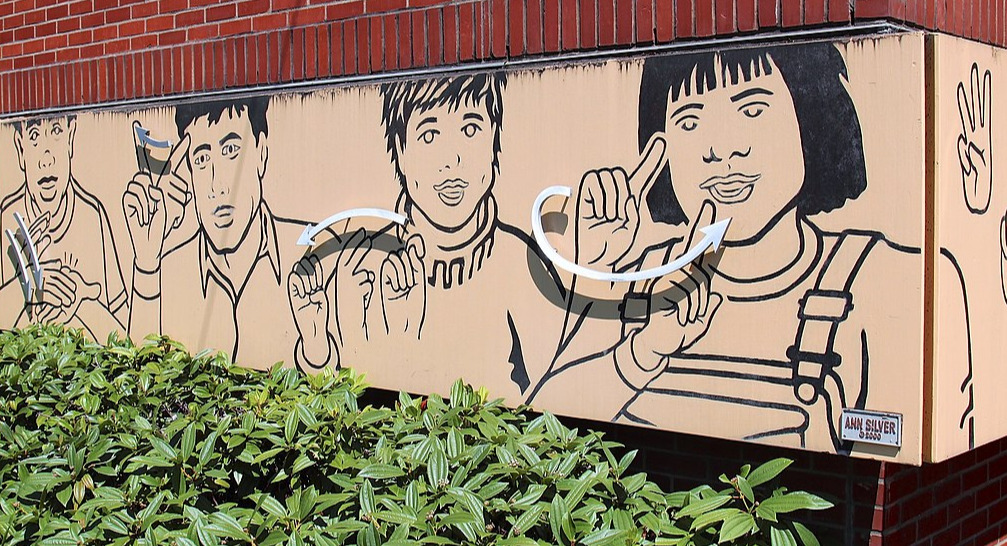essays
I Don’t Have To Choose Between Writing About Myself And Writing About The World
How navel-gazing fits into the politics of personal authority

I was balancing a plate of honeydew in the green room of a book festival when I walked by a white man bemoaning the state of the publishing industry. The man wore a suit, and he spoke to a white woman; both of them looked to be in their 40s. As the man speared a clump of melon, he explained his frustration that editors kept buying memoirs. At this point, as a memoir-y writer, I had no choice but to sit down at the nearest table. To hear something like this, amidst casual eavesdropping, was like finding $20 on the sidewalk. I sipped my coffee, took out my phone, and pretended to gaze at the screen.
Why are memoirs still being published, the man asked. It was beyond him. It fed a nonsense cycle. Why do people keep reading them? Worse of all: Why are they being written at all? He leaned back, smug, as if he had just landed a well-placed punch against Big Memoir. The woman nodded politely, burrowing into her yogurt with a silver spoon. People are publishing them too young, continued the man. They are publishing too many. He paused, throat puffed with conviction: There’s no reason for that, unless you’re an admiral or something. He stabbed a strawberry. Eyes on the city skyline, he shook his head.
At that moment, the open tab on my phone was the Rachel Cusk profile of Nobel-prize winning memoirist Annie Ernaux. “Her art bears no relation to a privileging of personal experience,” writes Cusk. “What Annie Ernaux understood was that as a female child of the regional laboring classes, her self was her only authentic possession in this world, and thus the sole basis for the legitimacy of her art.” I was thinking about how the life we live determines our perceived authority around what we can write about, or rather, what we are allowed to be experts on, which is to say published experts on.
I became convinced that every ghost who haunted my writing desk would, one day, appear in human form.
When I heard his line about the admiral, I stopped looking at my phone. I became very fixated on carving the melon from the rind. I needed a knife in my palm. I needed to separate that which was sweet from that which would lodge in my throat.
I am not going to tell you who this author was. Not out of any sense of protection, but because I realize I was not meeting him as an individual. I was meeting him as the vessel of a voice that had, until that moment, been only in my head. His was the voice that tripped me when I sat down to type, that hissed at me whenever someone (usually a man) asked “So you’re a journalist?” and I said “Well, not exactly,” then went on to explain, his face pinched into a pitying smile, that my nonfiction reliably included myself, too. When I heard this man at the festival, I became convinced that every ghost who haunted my writing desk would, one day, appear in human form. That they might be friendly in the elevator. That when I dropped my fork, they’d hand me another.
I stayed silent that morning on the roof. I did not, if you can believe it, ask the man about his favorite memoirs by admirals. And yet I have spent the months since talking to him. Thinking about what I might have said: about how witnessing a memoirist’s vulnerability on the page makes space for interrogating our own, or about the political imperative of a writing that swivels between self and world, not as a means of dwelling on the self, but as a mode of almost diluting it, contextualizing it, tracing its wires back to their environmental, sociopolitical, and cultural roots. I would guess this book festival man saw himself as an objective observer of our world.
The first-person writing that I love refutes—critically—this myth of neutral narrator.
A few months later, I was traveling for the book in a different corner of the United States when, on a morning jog, I came across a historic waterfront sign about “naval stories.” I immediately thought of admirals. And then I thought of my belly.
When I say I am omnivorous, I mean I am hungry to read and write about everything.
To think of the belly-button is to think of navel-gazing, which is to think of the charges brought against those of us who write about ourselves, a kind of writing allegedly so myopically focused on the self that it does not see the world beyond it. Ted Kooser defines a poet as someone who stands before a window, controlling the strength of the sun outside, but the metaphor extends to creative nonfiction as well: Your silhouette can fade when you make the world outside brighter, just as your reflection can sharpen when that world darkens. Every time I sit down to write, I find myself in front of this window, fiddling with the lights. Who, or what, do I want the reader to see most clearly?
It is true that a first-person author turns their own narrative presence up or down, but I have come to resent the idea that I must choose between seeing my navel or seeing the world. When I say I am omnivorous, I mean I am hungry to read and write about everything. I do not want to pick between writing about another subject—as my training in academia and journalism taught me—and writing about myself. I look at the world to understand my life even as I mine my experiences to learn about the larger world.
Writing is the act of making one’s thoughts visible to other people. My pencil scrawlings are, very literally, the bridge between my interior and exterior world. Writing is an art form that lends itself, then, to complicating—to detonating—the binaries between self and other; inner thought and outer action.
Let us think literally about the alleged insult of “navel-gazing.” Imagine writing about your belly-button, a puckered lint-specked innie that nobody else, ostensibly, should care about. Then consider how looking at one’s belly button is not only to consider the bridge to one’s mother, but the body’s first interaction with civic infrastructure.
We live in a world of interconnection, but we exist in a society that often tries to silo us into our factions.
I look at my navel and see the brown brick hospital whose windows overlooked the soccer fields where I later got kicked in the shin. I see my mother in the operating room, gritting her teeth, while Supreme Court Justice Clarence Thomas is on trial for sexual harassment on the corner TV. I see the silhouette of her doctor, dulled to the choreography of conjuring life, discussing an upcoming fishing trip from behind a sheet as he cuts my mother’s belly open and pulls me out. I look at my navel and I see the hanging question mark of whether I, one day, will try to carry a child into this world, too.
Can you see that each navel has a different story? That to tell a navel story is to tell a story of labor, not just of your own mother’s, but of a system around you? Can you see how this story might be as important as a story about the life of a naval admiral?
To imagine that writing about oneself is not also writing about these larger systemic inheritances is utterly wrong. The writer’s job is to make visible the structures which might otherwise be unseen. We live in a world of interconnection, but we exist in a society that often tries to silo us into our factions, our nations, our species, our careers. To make us forget, for example, that the money our government spends on war is money they don’t spend on education. It is the writers’ imperative to illuminate the linkages between us, and to the histories we all carry. Not as a mode of teaching the reader facts, but as a way of helping them see their own body in union with the world.
I write to make interconnection visible. There is a selfishness to my method. It keeps the world oiled with wonder. When I think about grief, now, I think about how scattered human ashes are changing the soil chemistry atop some mountains, and then about how the griefs that I carry have changed my chemistry too. Or take the seedlings of northern oak trees, so quick to grow back, ecologists now think, because they evolved when elephants trampled them. We are not so far from extinct prehistoric creatures as we would think. To imagine these elephants when I now walk through the woods is to restore a glaze of awe to an act that can, on my worst days, feel like dragging a skeleton through a burning planet.
As a young journalist, I was taught that experts held authority. I would approach stories with a to-do list of ‘expert archetypes’ in my mind. When I was working on my first book, Wolfish: Wolf, Self, and the Stories We Tell About Fear, I would slot interviews in with the environmental conservationist, the rancher, the biologist. What I found, of course, is that ranchers are not just experts on their cows being predated on, they are experts on the habitat they steward, and where wolves like to walk. Just as I could talk to ranchers about cows, I could talk to them about the changing grasslands, or their experiences walking alone in the forest and being afraid. We each wear more hats of knowledge than are immediately visible. Considering my own first-person authority has trained me to think about other people’s authority in more capacious, generous ways too.
I had a similar revelation when talking to my agent about what sources I could look to as I wrote about how fear shaped a prey animal’s body. You too are an animal, she told me one day over the phone. You have the authority to write about what happened in your own body, you don’t just have to quote biologists. At that point, I was hesitating to put my own experiences with fear—with symbolic wolves—into the text. I felt my own experiences with fear were unexceptional. I did not want to subject the reader to my navel.
That was when I remembered a scene I had written years earlier, about something that happened on a college dance floor. This might not be necessary to include, a professor had written in the margins. It’s a fairly standard assault. At the time, I blushed. How embarrassing. I had presented something mundane as worthy of space. Only later did the comment lodge inside me, catalyzing the simple truth that writing about a “standard assault” is to write about a world that decides what sorts of assaults are standard.
How embarrassing. I had presented something mundane as worthy of space.
To accept the phrase “fairly standard assault” is to normalize both violation and violence. In college, in Sociology 101, I was taught that the job of the sociologist is to “make the familiar strange.” In many ways this is my goal as a writer too. I include mentions of my own life not because I think it is superlative, but because it is familiar. I want to challenge that which I—and which the reader—think they know.
Today, when I see a new memoir hit the bestseller chart, I think of the man at the book festival. I imagine him rolling his eyes, shaking his head. And then, because he is a passing character and not the narrator in my head, I tell him to hush. I look at the world—I look away.








